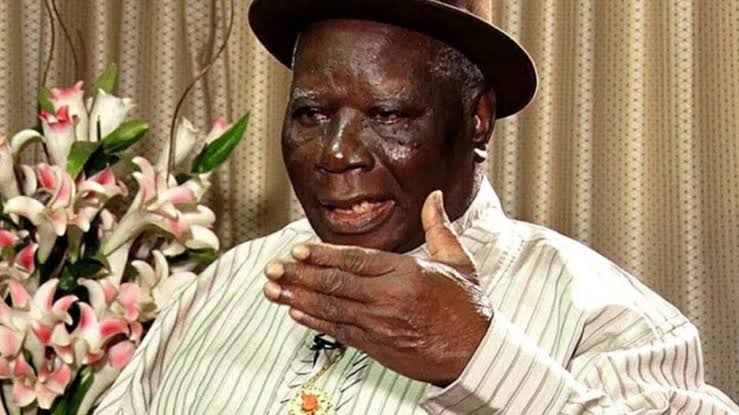Arewa Peace and Solidarity Initiative, APSI, on Friday, lambasted an elder statesman, Edwin Clark over his utterances concerning 2023 presidential election.
The group said betrayal runs in Clark’s DNA because he allegedly worked against Igbos during the Biafran war in 1967 and also worked against his own Ijaw brother, former President Goodluck Jonathan.
Clark had in a statement he signed yesterday accused a chieftain of the All Progressives Congress, APC, and Chief Whip of the Senate, Senator Orji Uzor Kalu of betraying the South-East geo-political zone.
APSI National Coordinator, Dr. Bashir Lamido said the group was disappointed with Clark’s position.
In a statement, reads: “
“We are surprised to read a statement from a supposed elder statesman, Chief Edwin Clark accusing the Chief Whip of the Senate, Senator Orji Uzor Kalu of betraying his people ahead of the 2023 general elections.
Clark’s outburst is annoying and highly irritating. Is he saying that the North-East geo-political zone is not eligible to contest the presidential election? Is Ahmad Lawan not qualified to govern Nigeria? When did Edwin Clark started loving the Igbos to the point of becoming their spokesperson? It is on record that he betrayed Biafra during the war of 1967-1970 against his brothers and sisters in and today where is Edwin Clark in the scheme of things in Nigeria.
“Clark must know that his inconsequential utterances cannot stop Lawan from succeeding President Muhammadu Buhari in 2023. We know his job and DNA is betrayal and sabotage even though he sabotaged his brother former President Goodluck Ebele Johnathan as president of Nigeria. He always takes sabotage and betrayal as norms. It is unbelievable and unfortunate he continues doing this until younger generations know that it is his hubby.
“The likes of Edwin Clark are the reason the South is badly divided especially the South-East and South-South geo-political zones. A man at the age of Edwin Clark is supposed not to be economical with the truth or deceive the young generation because of parochial interest.”

